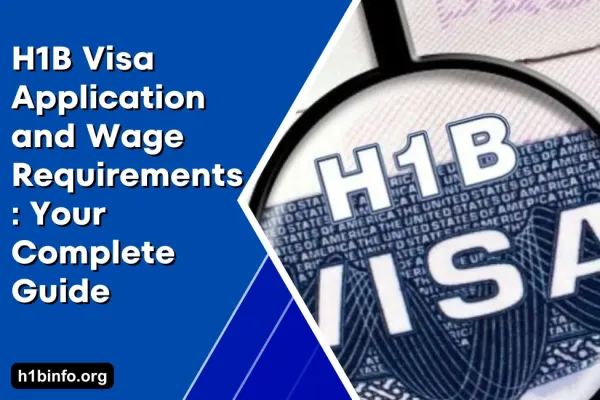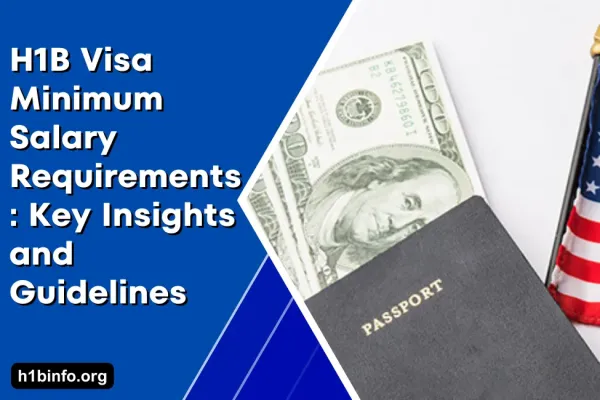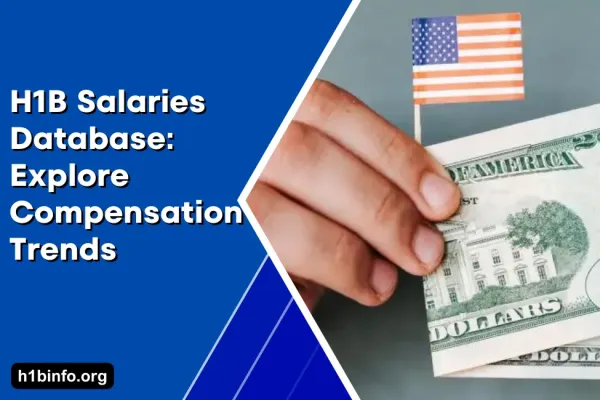Throughout history, there has been a consistent upward trajectory observed in the salaries of H1B visa holders. From 2010 to 2020, there has been a significant rise in the average income of H1B employees, which brings positive news for individuals applying for H1B visas. This favorable trend can primarily be attributed to the ever-increasing demand for skilled professionals within the United States.
Previous and Current H1B Salary
The salaries of H1B workers have continued to climb steadily, as reported by the United States Citizenship and Immigration Services (USCIS). In early 2023, the average income for H1B visa holders reached $60,000. This rise in remuneration can be attributed to the shortage of proficient labor within the nation. To allure and retain highly skilled individuals, employers are providing attractive salary packages to maintain a competitive edge in the market.
Moreover, the emergence of the COVID-19 pandemic has also significantly influenced H1B salaries. With numerous companies' widespread adoption of remote work policies, employers have become more open to hiring H1B workers who can effectively contribute from a remote location. Consequently, the demand for H1B workers has soared, resulting in higher salaries within this particular category.
H1B Salary and Gender
Please take into consideration that there exists a disparity in wages between genders among H1B workers within the United States. According to a recent inquiry carried out by the Economic Policy Institute, female H1B workers, who are foreign individuals employed in specialized fields, receive 23% less compensation compared to their male colleagues.
This difference in earnings stems from a variety of factors, which encompass prejudiced practices, occupational segregation, as well as discrepancies in educational qualifications and professional expertise.
H1B Salary and Education
The educational level attained by H1B workers plays a pivotal role in determining their salary. Typically, individuals with higher educational qualifications tend to command higher salaries in comparison to those with lower levels of education.
According to research conducted by the National Foundation for American Policy, H1B workers holding a master's degree or higher received an average annual salary of $91,000 in 2019. In contrast, H1B workers with a bachelor's degree earned an average salary of $75,000 during the same period.
H1B Salary and Experience
The salary of H1B workers is influenced by several factors, among which their level of experience holds significant importance.
Typically, individuals with more extensive experience tend to command higher salaries than those without prior experience. As per a research study conducted by Glassdoor in 2019, H1B workers who had accumulated one to three years of experience received an average annual salary of $75,000, whereas those with a decade or more of experience earned an average salary of $117,000.
H1B Salary and Job Title
Furthermore, the job title held by H1B workers also plays a crucial role in determining their salary. Typically, if you’re an individual holding higher-level job titles, you are rewarded with greater remuneration compared to those in lower-level positions.
This finding is supported by research conducted by the National Foundation for American Policy. You can see that the study highlights that H1B workers with job titles such as
- Software engineer
- Systems analyst
- Programmer Analyst
Individuals holding H1B visas are bestowed with more lucrative salaries in comparison to their counterparts with job designations such as financial analysts and business analysts.
Factors That Affect H1B Salary
Numerous factors come into play when determining the salary of H1B visa holders, and one of the most prominent among them is the geographical location of the job. Generally, H1B salaries tend to be higher in urban regions as opposed to rural areas.
This can be attributed to the higher cost of living in urban areas, which compels employers to offer more substantial compensation to attract skilled workers. Apart from job location, several other factors contribute to securing a desirable salary as an H1B visa holder. These additional factors will be elaborated upon below.
- The industry in which an H1B worker is employed plays a pivotal role in determining their salaries. For instance, individuals in the technology industry tend to command higher incomes than those in other sectors.
- Additionally, the size of the company holds substantial sway over H1B salaries.
- The educational background and professional experience of an H1B worker also significantly impact their earning potential. Generally, individuals with advanced degrees and extensive experience command higher salaries than those with limited education and work experience.
- An H1B worker's job title is a notable determinant as mentioned earlier.
- H1B workers must engage in salary negotiations with their employers to ensure that they receive fair compensation for their contributions.
You can also read another article on salary trends of H1B visa applicants and visa holders on our website





